He left John Adams High School as the team’s Most Valuable Player and an Indiana Football Coaches Association all-state tight end.
He grew up in the heart of Irish country, but Notre Dame didn’t come calling. In fact, the only school willing to give him a chance was Ball State, a two-and-a-half-hour drive south of his hometown of South Bend.
He took a redshirt season in 2015. The following year, he played in all 12 games while making five starts. The next, he became the Cardinals’ regular starting tight end, but an injury on the first play of the team’s seventh game of the year sidelined him for the remainder of the season.
After meeting with coaches right before winter break in 2017, a decision was made to move him to the offensive line for the betterment of the team.
In his last two seasons at Ball State, he started all 24 games at right tackle and was named to the All-Mid-American Conference First Team in 2019.
Now, Danny Pinter plays the waiting game leading up to the NFL Draft following his performance at the NFL Combine.
The key to his success, Pinter said, isn’t anything special.
“To me, it's a pretty simple concept,” Pinter said. “You can't really ever be satisfied with how hard you work … I feel like hard work is what's put me in this position with this chance to keep playing football. I'd say that's the number one thing that's helped me get to this point.”
About a week after the combine, Pinter said, his journey to the NFL took another turn when some of his private post-combine workouts began to get postponed or canceled due to COVID-19 concerns.
On March 16, NFL Commissioner Roger Goodell announced plans for the NFL draft, scheduled for April 23-25, would be modified. In a statement, Goodell said the draft would still take place the same days, but the in-person event itself would be canceled.
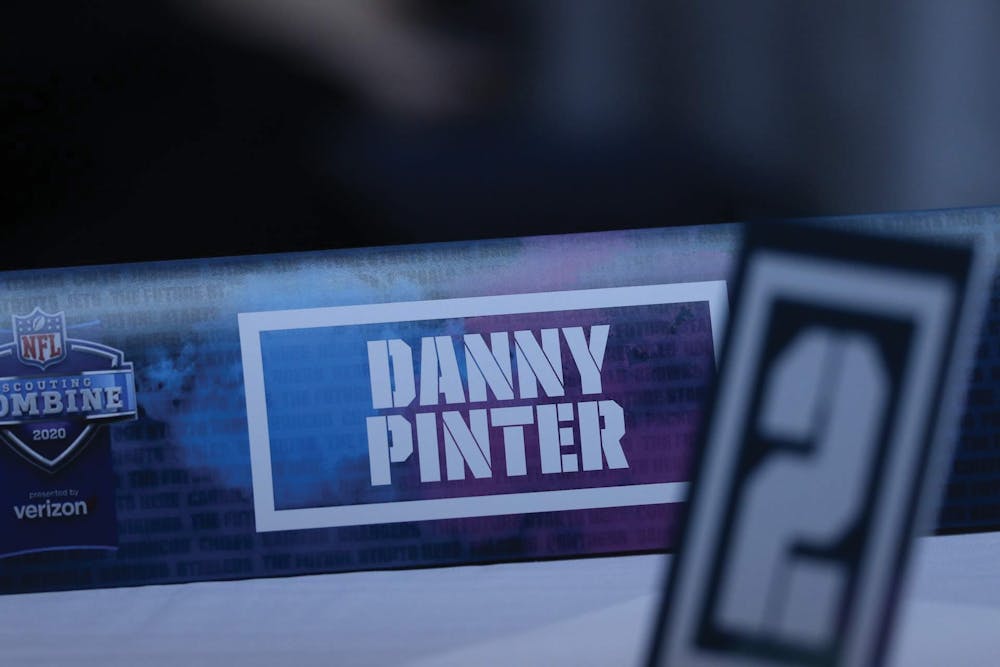
A name card for Danny Pinter, former Ball State offensive lineman, sits on his table before he comes out for interviews Feb. 25, 2020, at the Indiana Convention Center in Indianapolis. Pinter was the only player from Ball State invited to the 2020 NFL Scouting Combine. Jacob Musselman, DN
While Pinter didn’t receive an invitation to attend this year’s draft — an honor usually only players expected to be picked in the first round get — he said he can only imagine what those players are feeling.
“What's hard is it's an opportunity that guys every single year ahead of them have gotten, so that's really something that's disappointing,” Pinter said. “Draft day is a cool experience, but the coolest part is having this opportunity … Whatever means it is to actually have it presented to us isn't what matters too much at the end of the day.”
Pinter has had to adjust his routine with everything surrounding the coronavirus. He said he’s been focusing more on drills and workouts he can do by himself, like yoga, stretching and snapping the football. His mindset, however, hasn’t changed.
“The means of how you're doing it gets changed, but what you're doing shouldn't change,” Pinter said. “You could sit there and be upset about it if you want to and be upset that it's not ideal, or you could embrace it and get the absolute most out of it.”
That’s the same hardworking approach Pinter has taken throughout his entire football career, and Ball State offensive line coach Colin Johnson said he saw something special in him from day one.
Johnson said he first heard about Pinter in 2018 while he was still coaching at DePauw University in Greencastle, Indiana. He heard Pinter was moving to offensive line, and Ball State’s coaching staff was excited about the switch.
RELATED: Pinter switches to O-line, gains necessary weight
As a former Cardinal, Johnson said, he was intrigued, and he kept tabs on the then-redshirt junior throughout the season. He was impressed, but he didn’t fully grasp what kind of a player Pinter was until he witnessed his first morning workout as the Cardinals’ new O-line coach in February 2019.
“It was almost like an aura that just permeated to everybody else around him. If you were in Danny's group, you were going to work your tail off because he demanded it,” Johnson said. “It was pretty neat to not only hear those guys talk about how special he was, but then to actually come in and see it for myself. It wasn't just fluff, it wasn’t just talk — it was the real thing.”

Danny Pinter, former Ball State offensive lineman and NFL draft prospect, sits on the sideline of the Senior Day game against Miami (Ohio) Nov. 28, 2019, at Scheumann Stadium. Pinter partnered with the Boys and Girls Clubs of Muncie to donate money for each rep he completed during the bench press test at the NFL combine. Pinter put up 24 reps and raised a total of $2,160. Jacob Musselman, DN
Essentially, from the time Ball State’s season was done in late November, Pinter was training. He traveled to Phoenix to work out with about 40 other draft-hopefuls at EXOS Football Academy, which has produced a total of 915 NFL Draft picks since 1999. He said the experience was like nothing he had done before. Rather than working on football-specific exercises, he was preparing to run a 40-yard dash, which he said he hadn’t done since camps in high school, among other drills.
“You'll never train like this again in your life because you're running to go be a track athlete is basically what they tell you,” Pinter said. “I've learned a ton in this process, both as a football player and then being a track athlete, I guess. It's a cool experience, it's a different way of training and it's been a good time.”
During this time, Johnson’s role in Pinter’s process changed to being a “voice of support” rather than being directly involved with his training. Johnson said that was fine by him because he felt he had already given Pinter just about all the advice he had.
“There wasn't a whole lot I could tell him other than, 'You have all the right stuff, and you keep doing what you're doing and let the chips fall where they may,'” Johnson said.
In early December, Pinter accepted an invitation to play in the NFLPA Collegiate Bowl, known as the “premier postseason all-star game for any draft-eligible college football players.” Just a couple weeks after the Jan. 18 contest, Pinter, along with 29 of his fellow Collegiate Bowl participants, were invited to the NFL Combine.
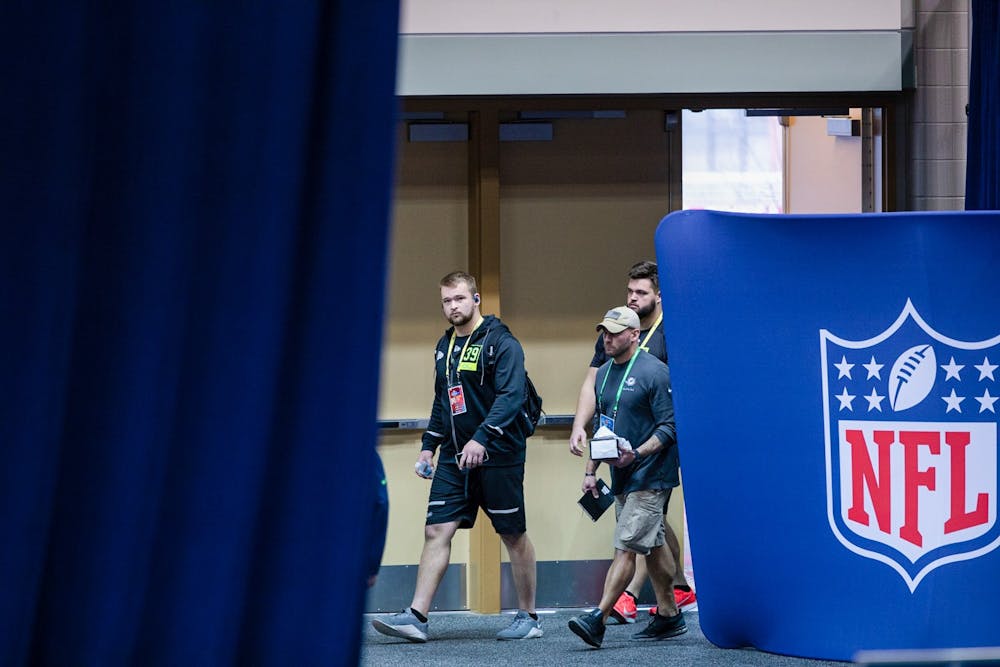
Danny Pinter walks into the bench press drill preparation area Feb. 27, 2020, at the Indiana Convention Center in Indianapolis, Indiana. Pinter partnered with the Muncie Boys and Girls Club to raise money for each rep he did at the combine. Jacob Musselman, DN
“I had a notion that I might get it,” Pinter said. “In the same way, I didn't want to assume anything until I had it. I woke up one morning, I was getting ready to go train and got the email. I was pretty amped up.”
Going into the combine, Pinter was graded as a 5.5-level prospect on a scale of 5.0-8.0 by NFL.com, giving him a “chance to make the end of a roster or practice squad.” His pre-workout analysis said his short arms would “get him into trouble,” his technique in pass protection was “way behind” and he had “underwhelming physical traits.”
Johnson said the body measurements and pre-combine numbers do matter, but if they were the only thing scouts looked at, Pinter wouldn’t have been invited.
“There's truth to the numbers, but at the same time, those numbers can't measure a man or test a man's mettle, and that's what Danny has as his biggest thing going for him,” Johnson said. “He's going to outwork you, and he's going to do everything in his power to make sure he's in a position to be successful, and that I wouldn't bet against.”
What Pinter proceeded to do over his two days of physical testing was showcase what his hard work had produced.
On Feb. 27, his 24 bench press reps put him behind only 20 participating offensive linemen.
RELATED: Danny Pinter bench presses for Boys and Girls Clubs of Muncie at NFL Combine

Danny Pinter gets ready to walk off the stage after completing the bench press drill Feb. 27, 2020, at the Indiana Convention Center in Indianapolis, Indiana. Pinter put up 24 reps, or a total of 5,400 pounds because each rep weighs 225 pounds. Jacob Musselman, DN
His on-field workout the next day, however, was where he really shined, and his athletic nature as a former tight end was evident.
Pinter was the second-fastest offensive lineman at the combine, running a 4.91-second 40-yard dash — one of only three with a sub-five-second run. His 20-yard shuttle time was third-fastest among O-linemen, his three-cone drill was the sixth-fastest and his broad jump was an inch away from cracking the top 10.
Pinter’s performance increased his prospect grade to a 5.82, worthy of a “backup or special teamer.” It also landed him on NFL.com’s All-Combine Team at right guard. He said the recognition and feedback he’s received have been nice, but his key, once again, is nothing special.
“At the end of the day, it's how hard you want to work, what you want to put into it and how you carry yourself,” Pinter said. “I think I know what's gotten me to this point, and that's just hard work, and that's really the way I'm going to embrace it.”
Eric Steinbach, one of Johnson’s best friends from high school, was a Consensus All-American and Big 10 Offensive Lineman of the Year out of Iowa in 2002. Johnson said it takes a special kind of player to do what Steinbach did, but when it comes to work ethic, he’d put his money on Pinter over anyone.
“Danny has one of the highest work ethics I think I've ever seen of anybody I've been around,” Johnson said. “Because of that alone, I think he's going to will himself into a position with somebody's roster. It may not be the first year, it may not be the second, but give him an opportunity to learn from his mistakes, and he'll find a place.”
And that’s all Pinter is hoping for right now — an opportunity. He said he hasn’t put much thought into the draft coming up in late April because he’s approaching everything one step at a time, and right now, the next step is getting that chance.
“I mean, that's kind of everything. That's everything you're working for right now is just to have that opportunity,” Pinter said. “Once you get it, just kind of rely back on holding yourself to that high-standard work ethic, and then just make the most of the opportunity. Certainly, everything you're doing — training, all that — is just for that opportunity.”
Contact Zach Piatt with comments at zapiatt@bsu.edu or on Twitter @zachpiatt13.

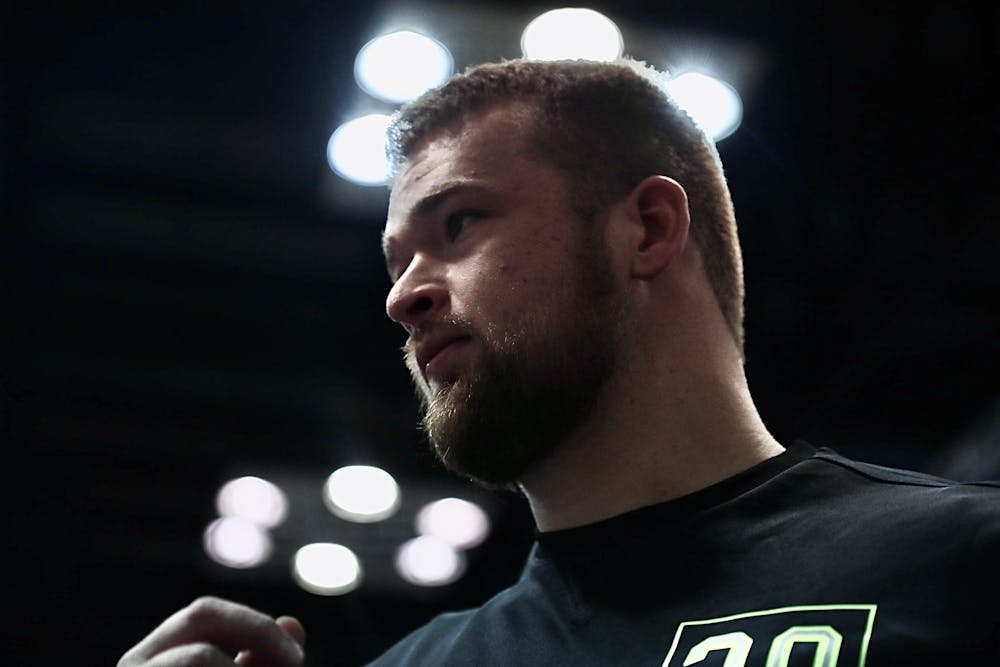
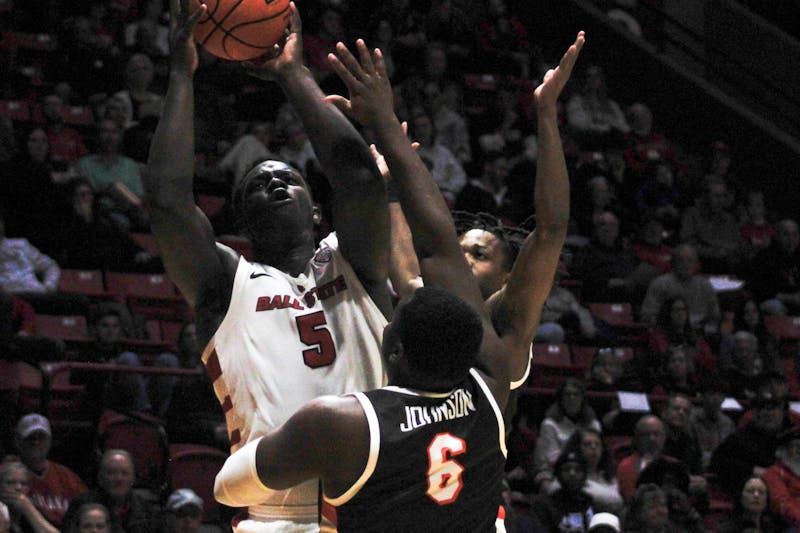

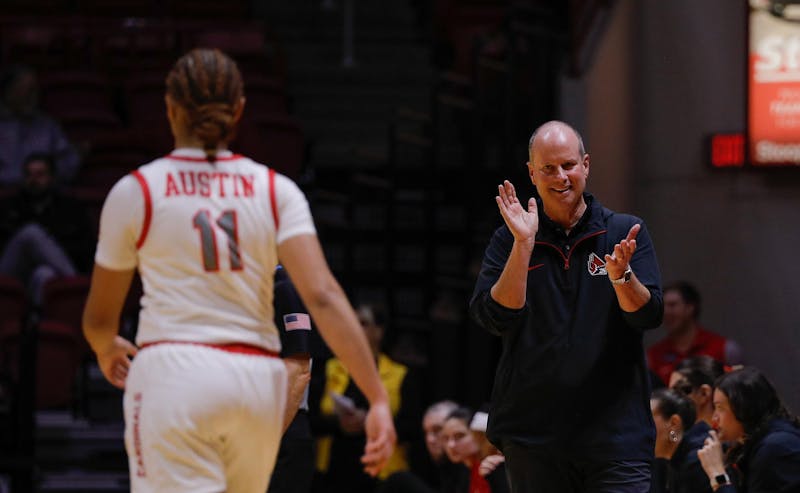
The Daily News welcomes thoughtful discussion on all of our stories, but please keep comments civil and on-topic. Read our full guidelines here.